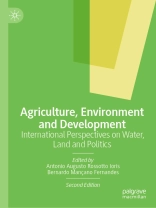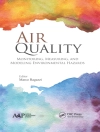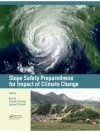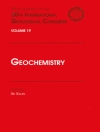The Second Edition of this book is completely revised and updated throughout providing an overview of current challenges faced within the area of Agri-food in relation to policymaking, ecological conservation and socio-environmental justice. Including a range of new chapters, the book explores some of the conceptual and analytical gaps that are presented by current approaches to this topic. The series of interconnected chapters offers a critical reinterpretation of the tensions associated with the failures of mainstream regulatory regimes, land and resource grabbing, and the impacts of global agri-food chains at local, regional and inter-sectoral scales. The book also examines past legacies and emerging challenges associated with agriculture modernisation, politico-spatial disputes, climate change, social movements, gender, ethnicity and education. It likewise addresses the transformative potential of different combinations of biophysical, socio-technical and socio-spatial practices of food sovereignty.
विषयसूची
1. Agriculture, Environment and Development: International Perspectives and a Critical Agenda of Investigation.- 2. Prolegomenon: Money and Territory.- 3. Disruptive Governance in the UK Food System and the Case of Wales.- 4. Back to the Past: Authoritarian Populism, Disruptive Governance and Policy Dismantling in Rural Brazil.- 5. Contested Landscapes: Territorial Conflicts and the Production of Different Ruralities in Brazil.- 6. Land Inequality in Brazil: Conflicts and Violence in the Countryside.- 7. The Agrarian Question and the Rural Development Paths in the Periphery of Argentina: Past and Present in the Territorialisation of Peasantry in Santiago del Estero.- 8. The Empty Food Bowl: Discourse Disconnection of Australian Agriculture.- 9. Say Agribusiness but Mean Genocide: Grabbing the Guarani-Kaiowa World.- 10. Land and Food Access in the context of Climate Change: Implications to Rural Development in Mozambique.- 11. Accumulation by Land Rent and Territorial Disputes in a Brazilian Agricultural Frontier.- 12. Dispossession and Agricultural Commodities: The Case of Oil Palm Farming in the Brazilian Amazon.- 13. Three Pillars of the Global Governance of Coffee Production.- 14. (De)institutionalising Agroecology: A Historical-Relational-Interactive Perspective on the Evolution of Brazil’s Agri-Environmental State.- 15. Decolonial and Feminist Approaches to Critical Food Systems Education.- 16. Territorial Resistance and Peasant Food Systems in Brazil.- 17. The Difficult but not Impossible Defeating of Right-wing Populism and the Exploration of a Socialist Future.
लेखक के बारे में
Antonio Augusto Rossotto Ioris is reader in human geography and director of the M.Sc. in Environment and Development at the School of Geography and Planning, Cardiff University. Associate editor of the journal Progress in Development Studies and author of, among others, the books “Agribusiness and the Neoliberal Food System in Brazil: Frontiers and Fissures of Agro-neoliberalism” (2017), “Frontier Making in the Amazon: Economic, Political and Socioecological Conversion” (2020) and “Kaiowcide: Living through the Guarani-Kaiowa Genocide” (2021). He edited “Agriculture, Environment and Development: International Perspectives on Water, Land and Politics”, published in 2016.
Bernardo Mançano Fernandes is professor of the Graduate Programme in Geography and of the Graduate Programme in Territorial Development in Latin America the Caribbean, São Paulo State University (UNESP), and holder of the UNESCO Chair in Territorial Development and Education for the Countryside. He is CNPq Research Productivity Fellow and leader of the discipline of Geography at FAPESP.












